Free digital copy
Get Speciality Food magazine delivered to your inbox FREE
Get your free copy
While strides are always being made for greater equality in Britain’s workplaces, there is still much to be done in addressing, particularly, the difference in pay.
According to the latest Government research on the gender pay gap from the Office of National Statistics, it’s largest for those over 40 years old and amongst higher earners and skilled workers, and was higher in every English region (for full-time workers) in April 2024.
The data shows the median full-time hourly earnings for the same job last spring (excluding overtime) was £19.24 for men, and £17.88 for women.
At the same time, female founders report stark contrasts in the access to funding and capital compared to their male counterparts.
This is why initiatives such as International Women’s Day (March 8) remain important – driving women and decisionmakers to keep pushing on the issue of pay, and women’s rights (especially regarding pregnancy, perimenopause and menopause) in the workplace.
Ahead of Saturday, Speciality Food speaks to female leaders across fine food and drink, many of them members of the Buy Women Built campaign, to hear their voices and share their stories.
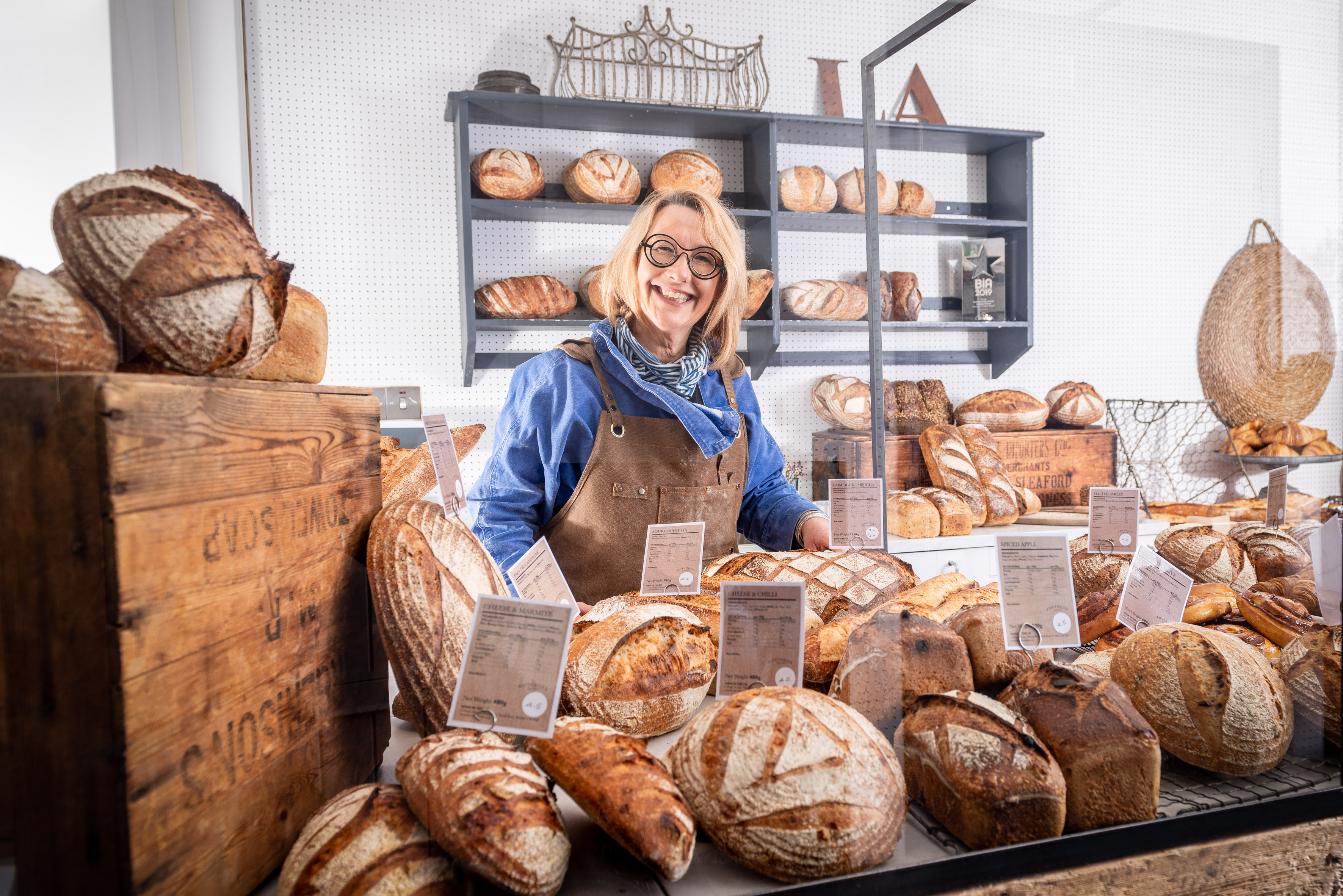
Catherine is co-owner of the multi award-winning Lovingly Artisan Bakery, which uses slow fermentation methods and organic British flours to produce sourdough bread and other baked goods
How difficult did you find it to break into the food and drink industry as a woman?
Helming an artisan hand-crafted bakery requires a huge sprinkle of creative fairy dust - let’s call it the woman’s touch, without stealing any credit from Aidan’s incredible eye for detail. Aidan has always appreciated and recognised the importance of flair and style but it’s the small touches that make such a difference in our customer experience and help to build our loyal and loving tribe. Tying red bows on our bags for Valentine’s, handwriting cards for online orders, and the creation and innovation of delicious new products are all things I love to do.
Stepping into the world of artisan baking was never a strain, but I recognised I was entering a male-dominated industry. However, this is something that is slowly changing! The industry from miller to manufacturer has welcomed me warmly and embraced my ideas for development and change. Navigating through the industry has been an educational journey for me, and I have connected with so many fantastic women leading in this field who are a constant inspiration to me. Having this diverse network across the industry is key to its continued development and success in the future.
Do you think the landscape has changed for women in the industry?
It’s fantastic to see more women now working in the bakery industry. We have a wide age range working across our business from 14 to 72 years old. We have an amazing team of women amongst our staff who are navigating their careers whilst bringing up a family, or are pre-menopausal or are entering menopause. It’s key to listen, understand and make these women feel heard.
What are the challenges you face as a female in your sector?
The challenge we all face in heading up a business is balance. Knowing when to rest and switch off. The best strategy for growth is your energy and drive for success, this can’t be achieved if you’re reaching burnout. This is a life lesson that took me a few years to master! I now understand the importance of stepping back, re-grouping and reflecting on the business from the outside. We are a 24-hour, 6 days a week business, it never sleeps so it’s vital to recognise when to step back and when to push forward.
What could be done to improve the sector for female entrepreneurs and makers?
Women need a louder voice, to be heard and understood. Businesses succeed when they are diverse in their thinking, they listen to their staff, and positions are filled based on experience rather than gender. Female entrepreneurs are given a good platform, our skill is learning how to use it to our advantage.
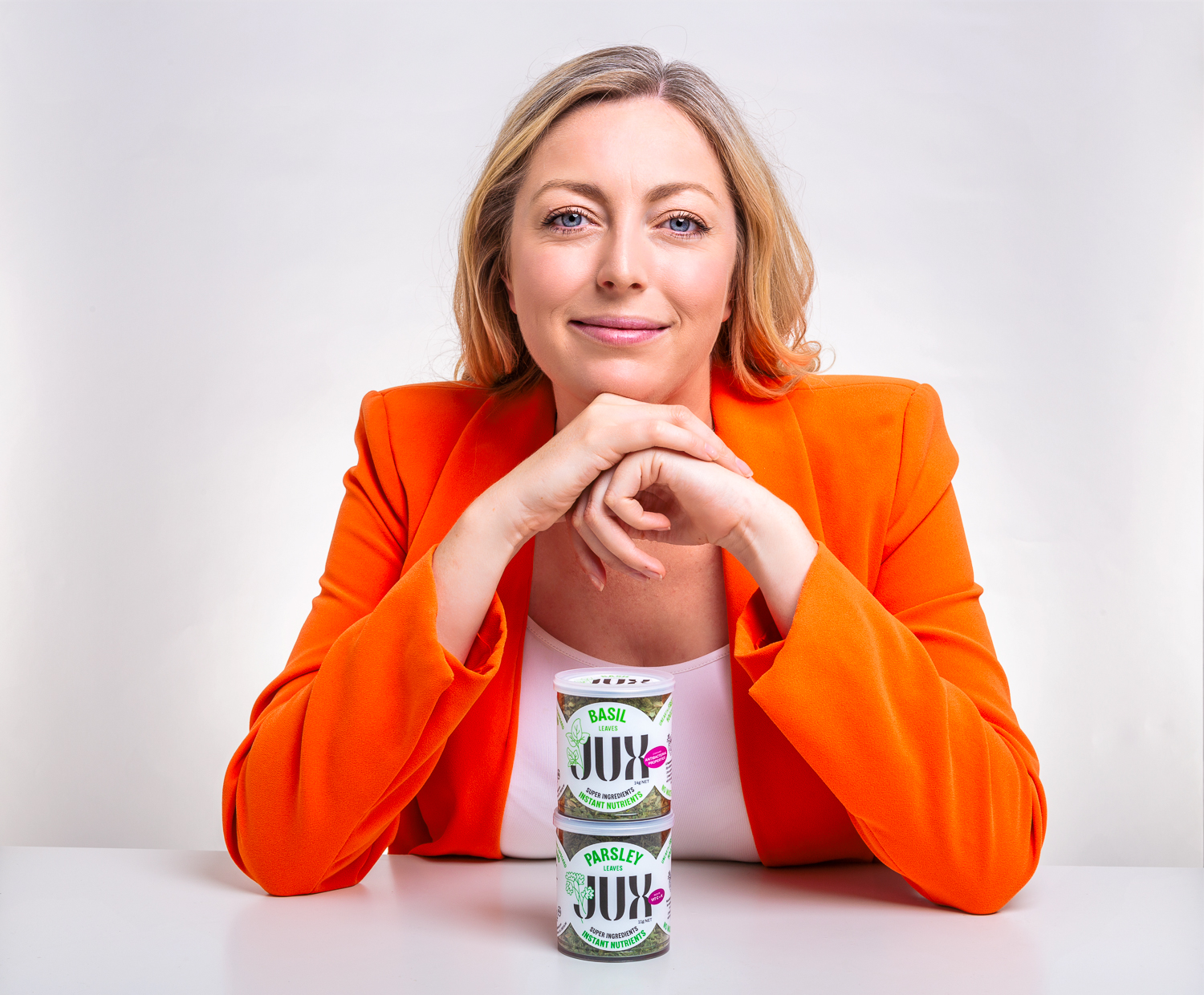
Anna is the founder of JUX, which uses advanced freeze-drying technology developed by NASA to produce a range of pre-chopped, long-lasting ingredients, from herbs and spices to vegetables
How difficult did you find it to break into the food and drink industry as a woman?
I didn’t find it difficult—if anything, I was struck by how supportive the food industry is. Compared to my previous experience in the music industry, which is very male-dominated at the top and notoriously hard to break into. The food space felt refreshingly collaborative. Founders genuinely want to help each other, which makes sense - food is about bringing people together, and that sense of community extends behind the scenes, too.
When I was starting out, so many founders were generous with their time and advice—people like Amelia Christie-Miller from Bold Bean, Giles Humphries from Mindful Chef, and Julie Waddell from Moorish. There’s a real feeling that we’re all on the same team, and that’s something I love about this industry.
Do you think the landscape has changed for women in the industry?
It’s evolving, and in many ways, there’s never been a better time to be a female founder. Flexible and hybrid working is more normalised than ever, which makes it much easier to juggle different responsibilities while building a business.
There are also brilliant networks emerging that support female founders, like the BWB (Buy Women Built) Network, which is already making a real impact. Their collaboration with Ocado on the Female Founder Aisle - where JUX is now listed - is a great example of how the industry is starting to champion more female-founded brands. That said, there’s still a long way to go, particularly when it comes to funding. Female founders still receive a shockingly small share of VC investment - just 2% of all venture capital funding went to female-founded startups in 2023.
What are the challenges you face as a female in your sector?
On a personal level, juggling a fast-growing startup with two children under two can be intense. Some days, it feels like I’m not doing enough on either front - but I’ve learned to push those thoughts aside and remind myself that I’m giving my all every single day. In many ways, it’s made me more decisive and cutthroat with my time.
Fundraising was another challenge. Accessing the right networks is harder for female founders, and it was frustrating to see how much of the investment space is still so male-dominated - 99% of the pitches I did were to men. But I also found that there are people out there who genuinely want to support women-led businesses, you just have to find them. I’m lucky to have ended up with a fantastic team of investors who truly believe in JUX.
What could be done to improve the sector for female entrepreneurs and makers?
Right now, it’s a tough climate for raising capital, and the gender funding gap makes it even harder for female founders to get off the ground. We need better access to funding options. Schemes like the Virgin StartUp loan are brilliant, and we need more initiatives like it!
Retailers can also play a role by actively championing women-built brands. The Ocado Female Founder Aisle is a great example; it gives customers a chance to discover and support incredible businesses founded by women. More initiatives like this would make a huge difference.
Who are some other women in the food and drink industry you feel deserve to be celebrated?
Nicci Clark at Nourish is a brilliant voice against ultra-processed foods, and her soups are not just delicious but genuinely nourishing. Amelia Christie-Miller of Bold Bean Co has completely transformed the way people see beans, turning them into a hero ingredient through her passion, brilliant storytelling, and commitment to sustainability - and is always so kind with her time, she’s truly the Queen of beans! And Hannah Gibson, Ocado CEO is an inspiring leader, a mum, and the driving force behind Ocado’s BWB aisle, which has done so much to spotlight female founders.
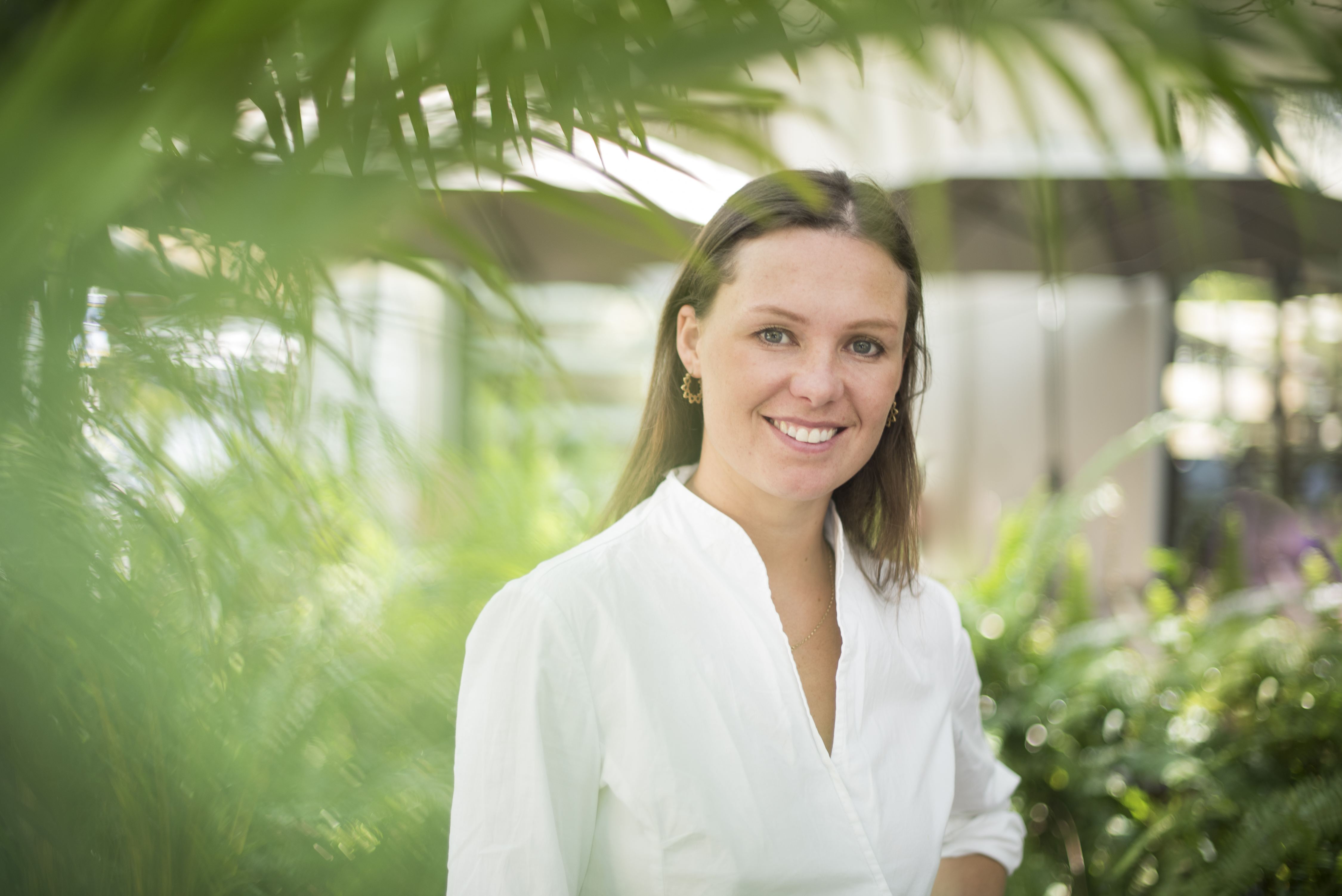
Hannah is the founder of purpose-driven brand, ChicP, which specialises in hummus, with a mission to combat food waste and promote sustainability
How difficult did you find it to break into the food and drink industry as a woman?
Being a woman in the food and drink industry was never something I initially saw as a barrier. However raising investment, which I only decided to do later on in the journey, proved to be a significant challenge. That said, I found that the industry was welcoming, and I was able to establish myself quickly. I believe that having a strong brand with a clear mission and a high-quality product were the key factors in gaining recognition and acceptance.
Do you think the landscape has changed for women in the industry?
The landscape for women in the food and drink industry continues to evolve and expand. Initiatives like Buy Women Built (BWB), have played a key role in increasing visibility for women-led businesses and encouraging consumers to support them. There are now more support networks and resources available for female entrepreneurs, making it easier to navigate the industry. The challenge lies in knowing where to find these opportunities, but overall, access to funding, mentorship, and business development resources has improved.
What are the challenges you face as a female in your sector?
One of the biggest challenges I have faced as a female entrepreneur in the food and drink sector is securing investment. In the UK, only about 1% of investment goes to female-founded businesses, making it significantly harder to access the funding needed for growth. This has been the most challenging aspect of building the business and getting it off the ground.
What could be done to improve the sector for female entrepreneurs and makers?
Improving the sector for female entrepreneurs starts with better access to clear, streamlined resources. Many women struggle to find the right support, and once they do, the sheer volume of information can be overwhelming. Having access to the dedicated, well-structured communities - such as female founder WhatsApp groups or mentorship networks - can provide focused, ongoing support without the distraction of too many conflicting options. Additionally, establishing accessible spaces for women at the early stages of their business journey would be invaluable. Having a go-to platform or network before scaling a business can offer the guidance, confidence, and connections needed to get started successfully.
Who are some other women in the food and drink industry you feel deserve to be celebrated? There are so many inspiring women in the food and drink industry who deserve recognition. Ros from Borough Broth has done an incredible job launching a more niche product, traditional bone broth, into major retailers like Sainsbury’s and Waitrose. Producing such a high-quality, authentic product at scale is no easy feat, yet she has maintained the integrity of her recipe and manufacturing process, which is truly impressive. There are countless female entrepreneurs who are redefining the industry through innovation, sustainability, and quality-driven products. Their dedication to bringing unique, high-quality offerings to market while overcoming industry challenges is something to be celebrated.
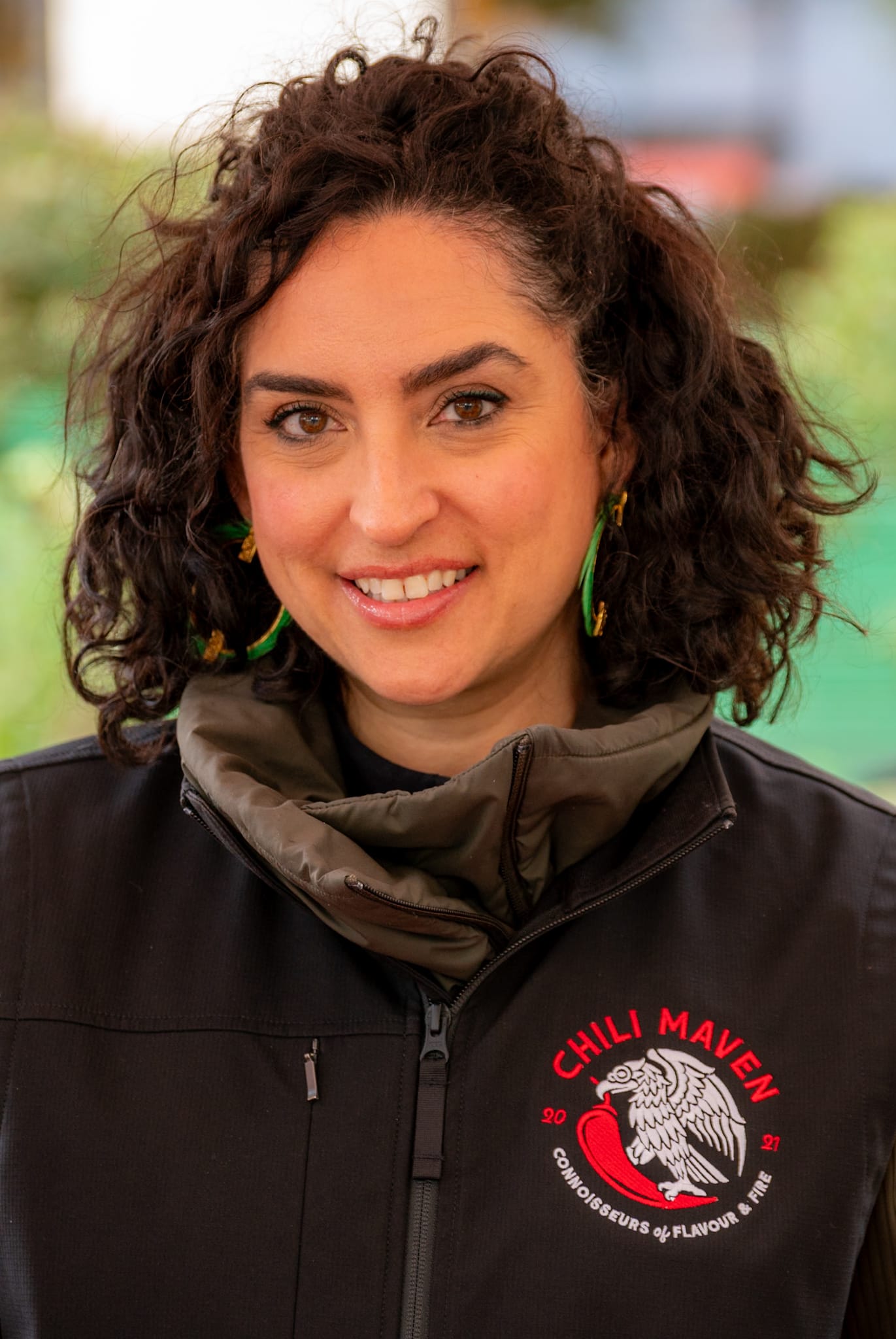
Alexa is founder of Chili Maven, which produces a range of authentic Mexican sauces using homegrown chillies
How difficult did you find it to break into the food and drink industry as a woman?
Surprisingly, it was easier than I expected—not because the industry isn’t challenging, but because I’ve found an incredible network of supportive women who are also building their own brands. Since I run my own business, I have the freedom to make decisions without navigating layers of male-dominated leadership. That autonomy has been empowering.
Do you think the landscape has changed for women in the industry?
I haven’t been in the industry long enough to compare decades of change, but in the three years I’ve been here, I’ve seen more visibility and support for female founders. There’s still work to be done, but I do think the movement toward women-led businesses and leadership roles is growing stronger.
What are the challenges you face as a female in your sector?
There’s research showing that women tend to apply for opportunities only when they meet 100% of the criteria, whereas men often go for it even if they meet just a few. I see the same pattern in the food and drink industry - whether it’s applying for funding or retail listings, or collaborations. We need more encouragement, mentorship, and confidence-building spaces to push forward and claim our place.
What could be done to improve the sector for female entrepreneurs and makers?
We need more women in decision-making roles - especially at the large organizations that control distribution and retail listings. The more women we have at the table, the more diverse and representative the industry will become.
Who are some other women in the food and drink industry you feel deserve to be celebrated?
Katya Torres de la Rocha, CEO and Founder of MexGrocer. She recognized my potential early on and gave Chili Maven a platform through MexGrocer, which has been instrumental in helping us grow.
Maureen, founder of Nonya’s Secrets. She’s been an incredible mentor, taking me under her wing and showing me the ropes.
Mex Ibrahim, co-founder of The Women in Food Industry group. She’s done so much to support female founders and create a real sense of community.
And Bea Kabiri from Delli. She’s been a champion of Chili Maven from the start, and gave me the opportunity to create my own recipe box for them, The Chili Maven Birria recipe kit.
Kate and Becky founded Small & Wild with a simple idea – to create delicious, sustainable, caffeine-free herbal teas the whole family can enjoy
How difficult did you find it to break into the food and drink industry as women?
Breaking into any industry as an entrepreneur has its challenges, but the food and drink sector can be particularly tough. As women, we’ve sometimes felt the need to prove ourselves and our ambitions for the business more, especially when pitching to investors or larger retailers. There’s also the juggle of balancing business growth with family life, which many female founders face. Since launching Small & Wild, we’ve both grown our own families too. Maternity leave as a founder looked very different from when we were employees. There’s no stepping away when you’re running a business! That said, we’ve been lucky to connect with a fantastic network of supportive women and allies in the industry who’ve helped us along the way.
Do you think the landscape has changed for women in the industry?
Yes and no. There has definitely been progress. There are more female-led food and drink brands making waves, which is so inspiring to see. We’re also seeing more initiatives aimed at championing women in the sector, such as the Buy Women Built partnership with Ocado, which we’ve been thrilled to be part of.
What are the challenges you face as a female in your sector?
One of the biggest challenges is accessing funding. Women-led businesses still receive a fraction of the investment that male-led ones do. And ultimately, securing significant investment is crucial to succeeding in the food and drink industry. In particular, we’d love to see more female investors and female-focused funds out there.
What could be done to improve the sector for female entrepreneurs and makers?
More mentorship and funding opportunities for women would make a huge difference. Generally speaking; access to better, more flexible childcare support would also help - in the UK, childcare is prohibitively expensive and rigid and improving this would enable more entrepreneurs and makers to flourish. Finally, we’d love to see even more networking spaces where women in food and drink can share experiences, collaborate, and lift each other up.
Who are some other women in the food and drink industry you feel deserve to be celebrated?
There are so many incredible women shaking up the industry! We’re big fans of the legendary Pippa Murray from Pip & Nut, who has built an amazing brand with a real focus on sustainability. Melissa Hemsley is another inspiring force, championing healthy eating and reducing food waste – we love her recipe books. We’re also really inspired by what Emma Heal has done to put non-alcoholic beers well and truly into the mainstream with Lucky Saint, whilst also raising awareness of mental health.
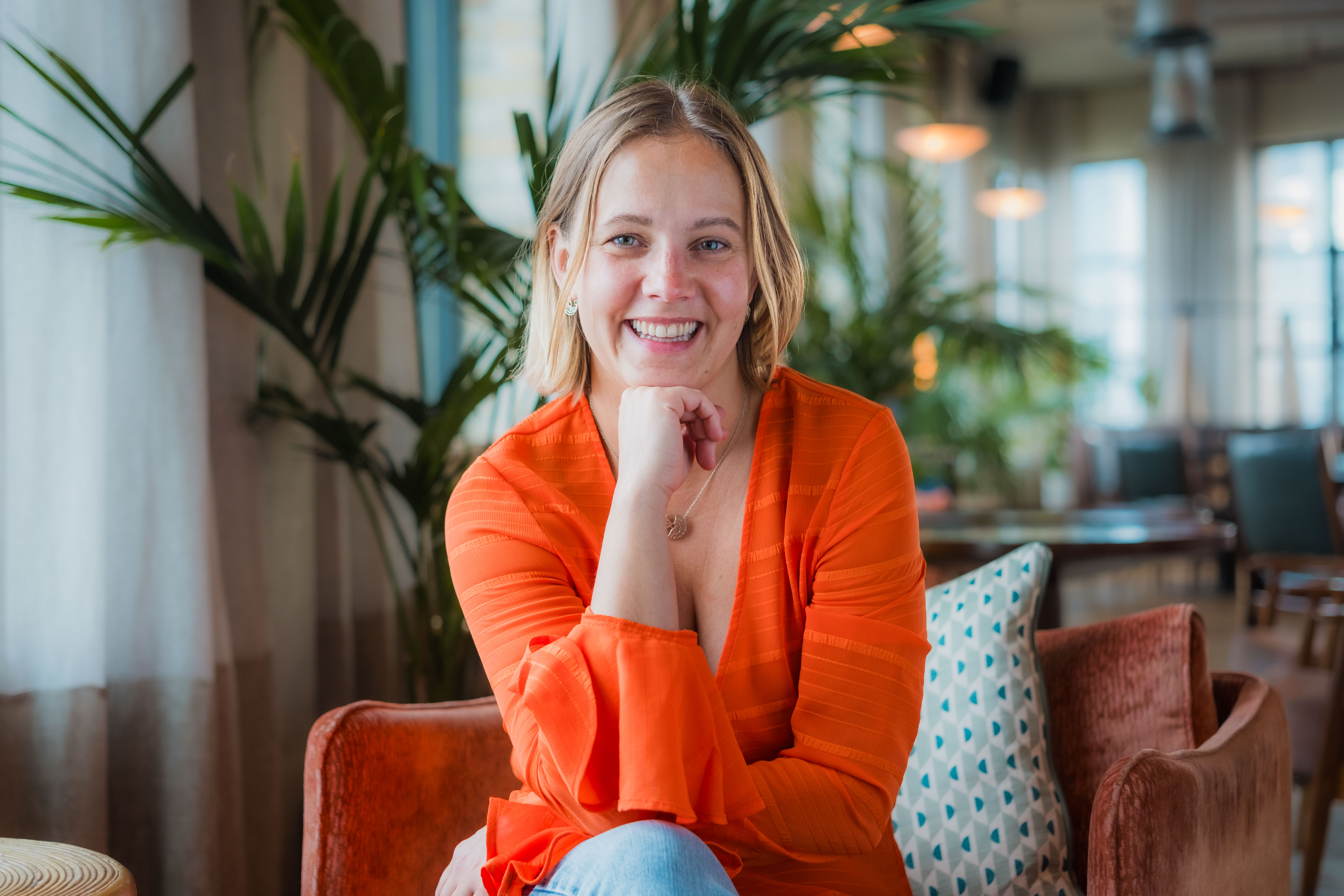
Bethan is the founder of Mother Root – a rapidly-growing drinks brand combining ginger, ACV and a touch of chilli
How difficult did you find it to break into the food and drink industry as a woman?
I’ve never thought of my journey as ‘breaking into’ the industry as a woman. I’ve always just pursued what I love. The world of food and drink is full of incredibly passionate people who care deeply about flavour, hospitality, and craft. That’s what I’ve loved being part of.
That said, as I’ve grown Mother Root, I’ve seen the structural challenges that make it harder for female founders to scale, particularly when pioneering something new. In the early days, before we had strong sales data, it was difficult to get decision-makers to take our vision seriously. And even when we had compelling early traction, we often found that doors only really opened once the wives and partners of industry leaders validated that this was a trend worth paying attention to.
The turning point came when our data became impossible to ignore. Our direct-to-consumer growth gave us deep insight into our audience—predominantly women over 40, prioritising their health in a balanced, thoughtful way. With over 50,000 engaged customers, many of whom buy regularly, we had undeniable proof of demand. At that point, it was no longer about belief - it was about facts.
Do you think the landscape has changed for women in the industry?
Yes, and in really visible ways. There are so many more female founders and leaders, and networks like Buy Women Built have been game-changers in bringing them together. Social media, for all its challenges, has also helped level the playing field. It’s given women the ability to tell their own stories and build communities without relying solely on traditional press as the gatekeepers.
For me, being visible as a founder isn’t just about recognition, it’s about showing that there are many ways to build a business. My journey started at my kitchen table, while I was pregnant and chasing after a toddler. That’s a story that will resonate with so many women, but we haven’t always heard these kinds of stories before. The more we share, the more it encourages other women to take their own ideas seriously and build something of their own.
Women don’t speak with one voice. We all have our own perspectives, our own paths but more stories in the mix means more inspiration and more possibility. That’s what really matters.
What are the challenges you face as a female in your sector?
I can’t compare my experience to that of a man, but what we do know - because the data proves it - is that female founders face a much harder time securing investment. That has to change.
In the early days, it was hard to get decision-makers to take the opportunity seriously. Before we had traction, it was about convincing them to believe in the vision. And when you’re working in a category that’s still emerging, that’s an even bigger leap for some to make.
But numbers don’t lie. As soon as we had the data to show the scale of demand, the conversation shifted. We’re not just riding a wave - we’re shaping the future of what it means to drink well and feel good. That’s the opportunity, and it’s huge.
What could be done to improve the sector for female entrepreneurs and makers?
Better funding opportunities - whether through private investment or government grants -would make the biggest difference. The data already shows female-led businesses outperform, yet they still receive a fraction of the capital. That’s an economic problem as much as it is a gender one.
Networks like Buy Women Built have been hugely valuable, giving female founders peer-to-peer support and mentorship. The more of these spaces we create, the better.
But we also need to start earlier. Entrepreneurship and business finance should be taught in schools, not as an afterthought, but as a core skill. And we need to showcase more women leading in business, so the next generation grows up seeing that success isn’t just possible, it’s expected.
Who are some other women in the food and drink industry you feel deserve to be celebrated?
So many. Amelia Christie-Miller of Bold Bean Co has been an incredible leader. She’s built not just a brand but a movement, and I’ve always admired how openly she shares the behind-the-scenes reality of scaling a business. That kind of transparency is hugely inspiring for others looking to take the leap.
I’m also forever grateful to mentors like Emma Wykes (founding COO of Seedlip) and Fiona Fitzpatrick (founder of Brand Growth Heroes). They gave me the confidence, especially in the early days, to back my own vision. And sometimes, they gave me the push I needed to make the really big decisions, whether that was hiring (or not hiring!) the right people or taking the right risks at the right time.
Having those voices of experience in your corner makes all the difference, and I feel incredibly lucky to have had that kind of support.
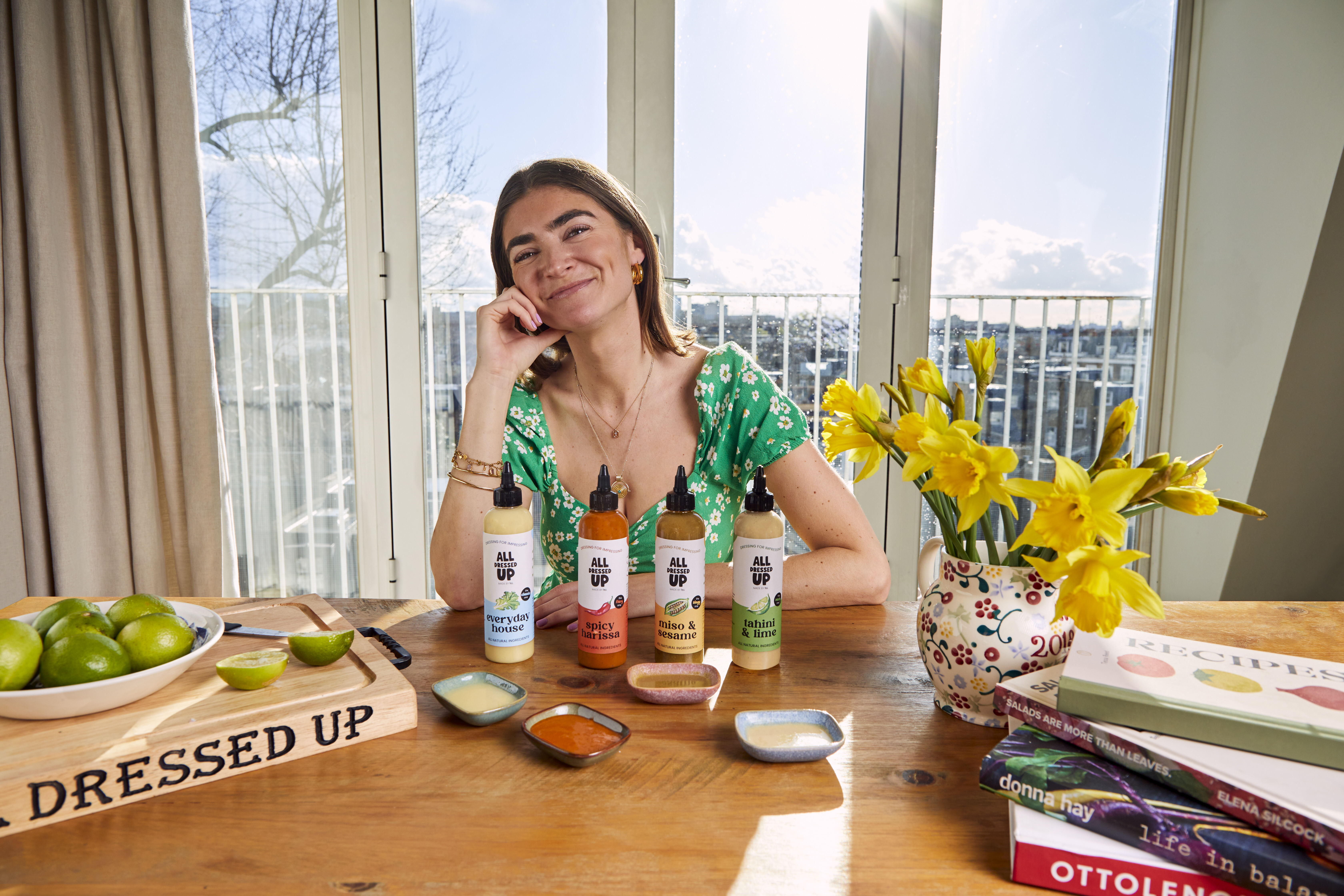
Tessa is the founder of All Dressed Up, an all-natural salad dressing business focused on using the best quality ingredients
What are the challenges you’ve faced as a female in your sector?
I think naturally you can be underestimated. Sometimes when you’re a young female and totally new at starting a business, people might not take your idea that seriously at the beginning. But I think that’s driven me to succeed even more, as I have a point to prove. As much to myself as anyone!
Do you think the landscape has changed for women in the industry?
I think it has. My first job out of uni was at The Coconut Collaborative, (almost 10 years ago) and it felt like most FMCG brands were owned by huge corporations. There were female-founded brands coming into the space then such as The Collective Yoghurt, Pip & Nut and Propercorn that I loved, and really looked up to. I thought they were all doing things slightly differently, and I think they have all really helped carve out the way for other female founders coming into the FMCG space.
What could be done to improve the sector for female entrepreneurs and makers?
I think what the team is doing at Buy Women Built is fantastic. For example, the collaboration we have been involved with recently with Ocado. More partnerships like this of shining the light on female-founded brands really makes such a difference in raising awareness and celebrating some fantastic up-and-coming brands.
Who are some other women in the food and drink industry you feel deserve to be celebrated?
There’s lots! I think Imme at Botivo is really cool, Imogen Royall at Northern Pasta is doing an amazing job, and Dominique Woolf’s products are all delicious.
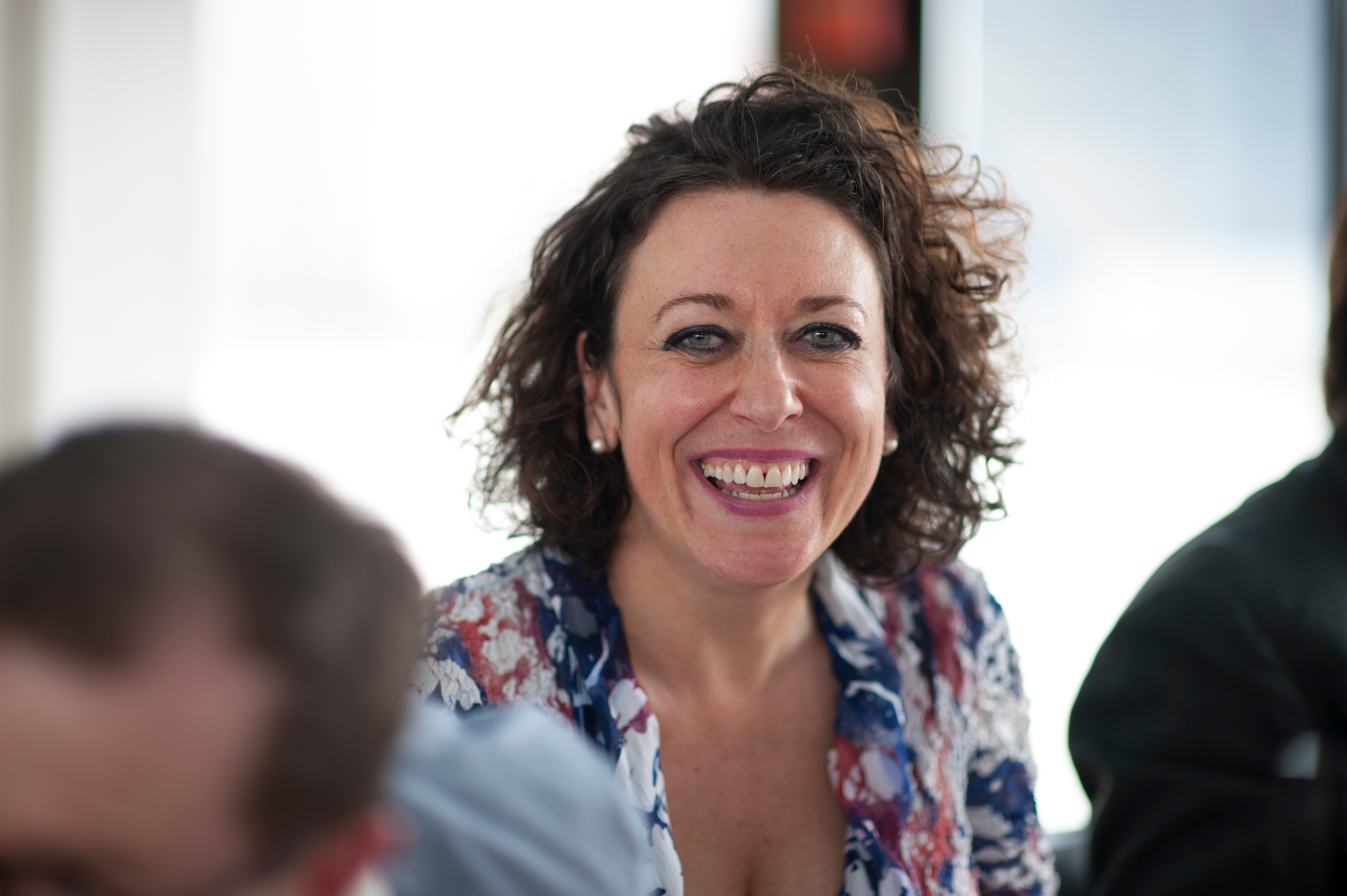
Joanna is the founder of multi award-winning artisan business Radnor Preserves
How difficult did you find it to break into the food and drink industry as a woman?
Customers loved my marmalade and wanted to buy it, so the business has grown very organically. My breakthrough was winning double gold at the World Marmalade Awards and having my first listing at Fortnum & Mason.
On a practical level, I was a member of Enterprise Nation led by Emma Jones, which provided excellent opportunities for networking.
Do you think the landscape has changed for women in the industry?
Yes, there is certainly more support available, and it is much more normal to see a higher proportion of female founders at events than I did when I first started.
What are the challenges you face as a female in your sector?
Running a small business has many challenges regardless of gender. However, I learned that if you are creating a great product, people respect your work, and you build a relationship from there.
What could be done to improve the sector for female entrepreneurs and makers?
Being part of the Buy Women Built Community has been incredibly inspiring - women instinctively help each other - but I hadn’t personally experienced such a proactive peer network that champions you and actively wants you to succeed. Buy Women Built is an exhilarating breath of fresh air and a great role model for the sector. They are changing the mindset by acknowledging that while not everyone can invest in female founders, or mentor a female founder, we can all buy from them. They are actively supporting this generation of female founders and paving the way for the next.
Who are some other women in the food and drink industry you feel deserve to be celebrated?
Bethan Jones and her amazing team at Total Food Marketing in Wales work extraordinarily hard behind the scenes to produce seamless events such as Taste Blas to introduce buyers to food and drink producers in Wales - I feel very lucky to have worked alongside them.
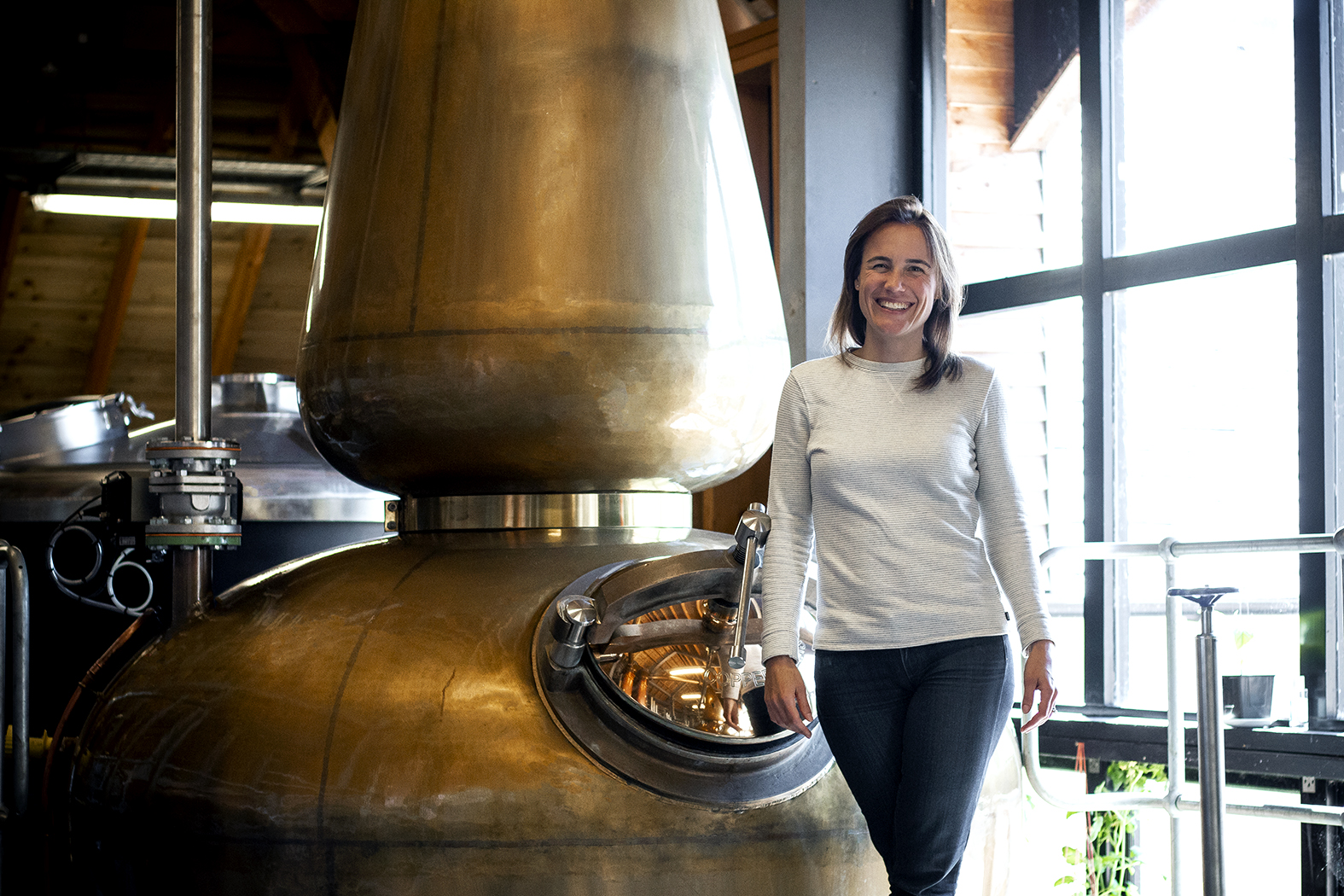
Annabel is the founder of Nc’nean - an independent, organic whisky distillery pioneering sustainable production and experimental spirits
How difficult did you find it to break into the food and drink industry as a woman?
Fundraising was the biggest challenge when getting started. It took two years, which involved a lot of hard graft and many dead ends. Raising millions of pounds off a piece of paper is tough – you can’t create a ‘prototype’ whisky without a distillery and a time machine!
The difficulty of fundraising as a woman has been well documented – it is significantly less likely that you’ll get funding as a woman than a man – however, I did it, and given the added difficulty of raising for a whisky distillery given the high capital investment and long-term nature, I’m pretty proud of that. By mid-2015 we had finally raised the money we thought we needed to build and then run the distillery.
I don’t really experience resistance from within the industry itself. It is a great place to work and there are loads of brilliant women in all sectors right the way through from making it to selling it and everything else in between.
Do you think the landscape has changed for women in the industry?
Interestingly, women working in the whisky industry is not a particularly new thing. Key women working in whisky over the years include Bessie Williamson, who was the first woman in the 20th century to own and run a distillery, and also Rita Taketsuru, who became known as the Mother of Japanese whisky in the 1920s. Rita moved from Scotland to Japan with her husband and founding their own distillery which then became the major Japanese drinks business Nikka.
There are now plenty more women involved in the industry doing an awesome job across a huge variety of roles right the way through from distilling to marketing – though we are unique in that we are currently the only female founded whisky distillery in Scotland. We hope that we inspire other women to found businesses too – and not just in whisky as this tends to be disproportionate across the board.
When it comes to who drinks whisky, there are also more and more women enjoying it too. 40% of whisky drinkers in the USA are women, though many people still assume that the whisky drinker is mostly male. This is predominantly to do with stereotypes following the prohibition of alcohol a century ago, and the advertising patterns that have followed it!
I want other women to feel like it’s acceptable for them to try and enjoy whisky, so we make sure women are well represented in both our team, and on our social platforms and communication channels to encourage more women through the whisky door. We think this is already having an impact, as from our own consumer research we can see that the number of female and male subscribers in our newsletter database and on our social channels is getting closer to a 50/50 split each year. This even split is something that we strive for so we can help build towards a future where whisky is truly enjoyed by everyone.
What are the challenges you face as a female in your sector?
The whisky industry itself is becoming increasingly inclusive – there tends to be more innovation, creativity, and more people creating and enjoying whiskies from all over the world which helps to break down some of the old school perceptions about whisky. However, I do often get asked ‘do you actually like whisky?’ by those outside the industry, which feels like a bit of a silly question and one which I might not get asked if I was man.
I think there is still lots to be done in markets like the UK to shift consumers perspective of whisky which has long been seen as a man’s drink, but there is no doubt attitudes are changing. What makes me happiest is hearing someone has been persuaded to try Nc’nean and that they have finally discovered a whisky they like. There is a whisky for everyone out there – it’s just a question of finding the right one!
What could be done to improve the sector for female entrepreneurs and makers?
Something that I do feel strongly about is that we should not deter people from working with us if they do not have prior experience in the industry. This is important for making the industry a more open and welcoming place, and means that people bring new and fresh perspectives too.
Our team of 21 people is over 50% female, and almost all of these women hadn’t worked in the whisky industry before. To us it is just a brilliant team of individuals all united under the mission of creating delicious tasting whisky with a low impact on the planet.
Who are some other women in the food and drink industry you feel deserve to be celebrated?
We have recently collaborated with Stephanie Jordan, co-founder of Avallen Spirits, to release an exclusive single cask whisky by ageing our whisky in one of their Calvados casks. They are doing lots of amazing work to help save our struggling bee populations and we share a lot of similarities when it comes to our interest in looking after this planet we call home.
I also really admire everything that Imme Ermgassen is doing at Botivo. Their botanical aperitivo is delicious and I love their branding and marketing. Finally, and in whisky too, I love how Georgie Bell at The Heart Cut is shining a light on some really cool distilleries via their independent bottling channel. We’ve just released a whisky with her and they are doing such a great job shouting about it. There are also brilliant journalists like Becky Paskin and Kristiane Sherry who are well worth the follow for keeping up to speed with what is happening in the industry.
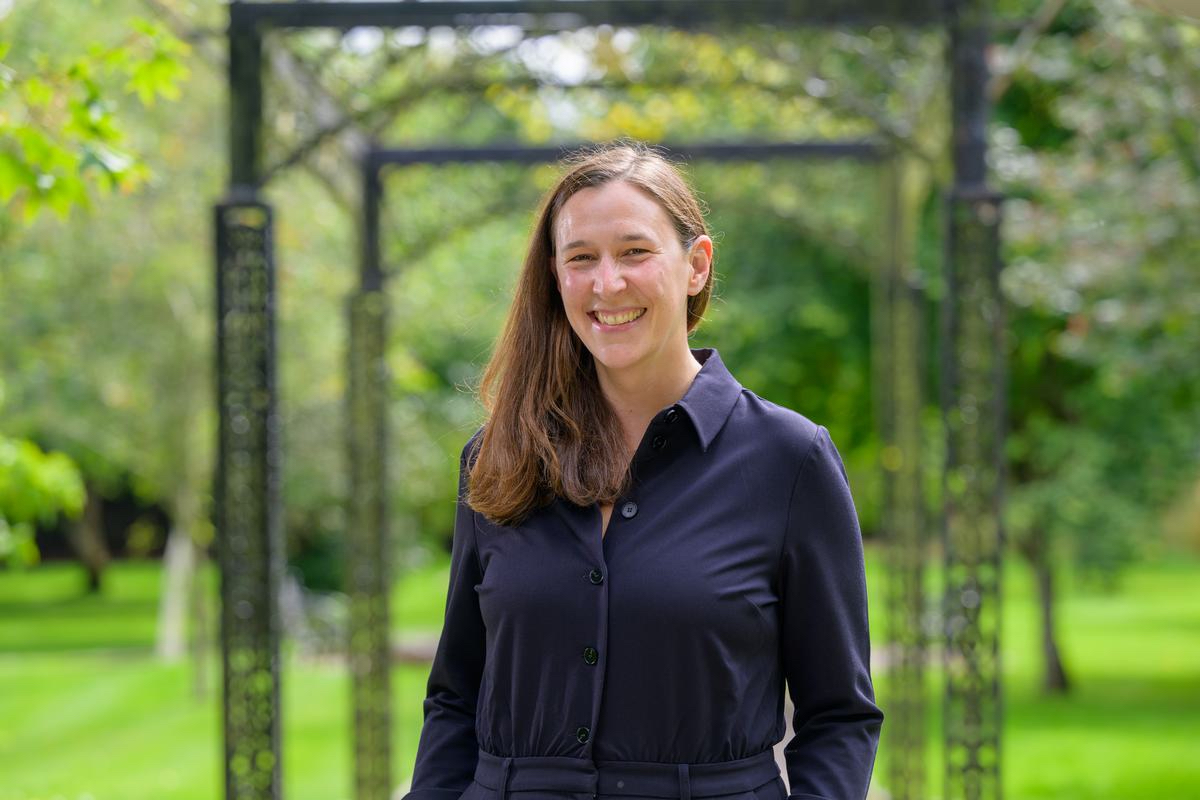
Karen founded Three Robins after one of her sons became lactose intolerant. The brand produces healthier oat milk products designed for families
How difficult did you find it to break into the food and drink industry as a woman?
I’ve been fortunate to launch my business in Scotland where there is a lot of support for start-ups in the food and drink sector, and increasingly for female founders too. I have benefitted from a great network of peers and mentors that have given me a lot of help in breaking in o the industry. I have probably found the balance of juggling start-up life with three young kids the most challenging part!
Do you think the landscape has changed for women in the industry?
I have only been in this world for a few years (I previously worked on women’s rights in conflict-affected countries) but even in that short time I would say that there has been a change. Groups such as Buy Women Built have obviously been pivotal in challenging assumptions about who founders are and breaking down the barriers for female entrepreneurs.
There seems to be more recognition of the valuable role that female founders are playing in the industry, and I certainly look up to a lot successful female-led businesses and learn from following their journeys. Seeing collaborations like the BWB x Ocado tie-up this month are incredibly inspiring and provide concrete support to women in the industry by getting more people to support their businesses in their shopping baskets. Having more women in senior roles at big retailers or in food service is also really important for challenging stereotypes and bringing a different kind of leadership to the sector.
What are the challenges you face as a female in your sector?
One of the challenges that I have faced is the assumption that I must have started my business as a lifestyle business rather than one that has the potential to grow, scale and become very successful. So many women are driven to start their business as a result of their own experience in having a pain point that nobody else was addressing (in my case, it was finding healthy, tasty plant-based products for my boys), and while I believe that this only strengthens the foundations, I have encountered the view that this is just something that I am doing in my spare time and not as a serious business proposition.
Funding is the other thing that is always raised in relation to female founders, and I have definitely experienced the challenge of pitching to rooms full of male investors or receiving questions that focus on risk and potential obstacles of my business plan rather than the traction and potential opportunity.
What could be done to improve the sector for female entrepreneurs and makers?
Communities like Buy Women Built are a fantastic resource, support mechanism and industry influencer and so I would love to see this grow and move out of London to reach other regions such as Scotland. More research and evidence to understand that impact of female-founded FMCG businesses would be great, as this might help to challenge assumptions about the scale to which our businesses can grow with the right support.
Who are some other women in the food and drink industry you feel deserve to be celebrated?
This is a very difficult question as there genuinely are too many to name. I have a fantastic network of female founders and would love to see them all celebrated. Some that I think are doing particularly great things are: Sonja Mitchell (Jump Ship Brewing), Jess Mackenzie (Jess Cooks and founder of the Kids Food and Drink Collective that we are also proud to be a founding member of), Darina Garland (Ooni), Amelia Christie-Miller (Bold Bean Co), Fiona Fitzpatrick (Brand Growth Heroes), Amy Langfield (Grow with Iris), and Pippa Murray (Pip & Nut).
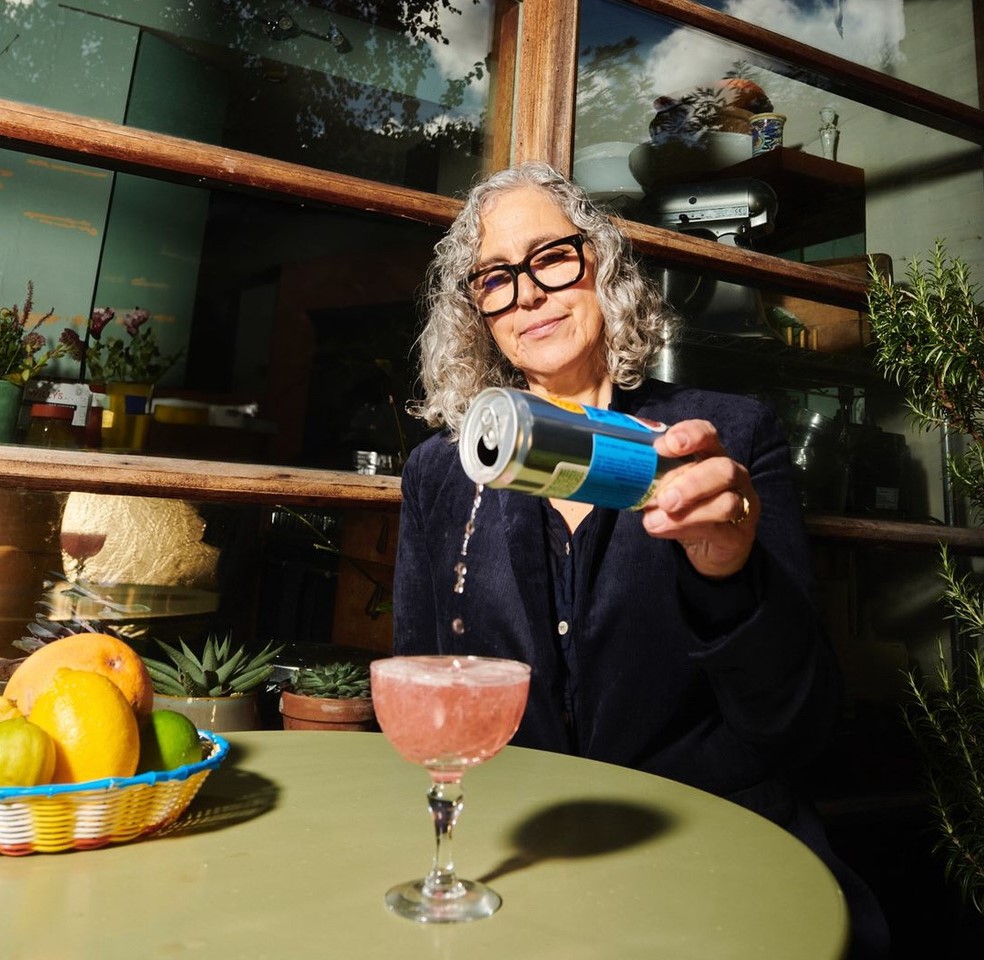
Nicola is the founder of water kefir brand Agua de Madre
How difficult did you find it to break into the food and drink industry as a woman?
I first tried water kefir in Silo the zero waste restaurant, which was once in Brighton. From there I created my very first water kefir at home and quickly launched into local restaurants. As the kitchen has historically been the natural home for women, extensions of domestic businesses are not a hard sell. The issue is when you have ambition and want to scale.
Do you think the landscape has changed for women in the industry?
There are more successful women founders showing we are more than capable of taking on the male-founded food and drinks businesses but, in reality, not much has moved on. Companies like Buy Women Built are showcasing female founded businesses and trying to drive awareness for them, but we need more investment in women founders as well as the younger generations to really come on board and support as well and feel empowered to become entrepreneurs themselves.
What are the challenges you face as a female in your sector?
Raising money is continuously a challenge as a single female founder with a fast-growing business that has taken a bit of time to grow. Mostly because it was ahead of its time and now healthy low alcohol drinking opportunities are the norm for most consumers, especially the younger demographic.
What could be done to improve the sector for female entrepreneurs and makers?
More support from the city and finance bodies generally, so that more female businesses can scale up and grow.